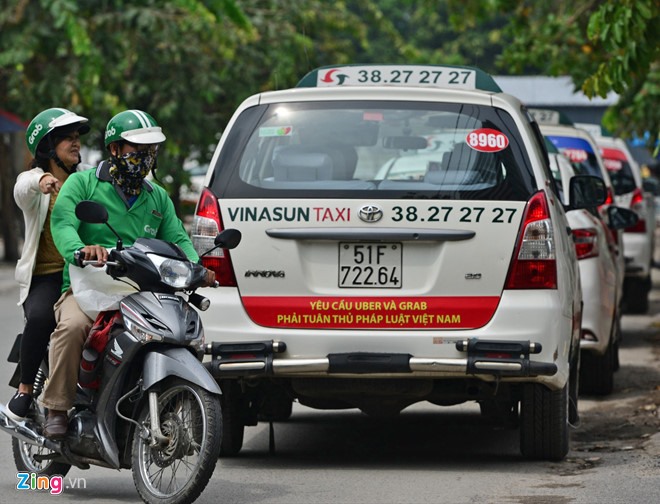During an unprecedented trial between a HCM City taxi firm against Grab, a Uber-type company, for alleged unfair competition, the judge posed a simple but fundemental question: “What field was Grab’s business licence registered in?”
Grab replied it was for passenger and goods transportation under Vietnamese law, adding that it only provided a digital platform for independent drivers, but did not hire them.
So does it make Grab a transport company like other taxi operators, or is it just a digital transport application and hence it should not be subject to transport regulations?
As the trial is still ongoing, the judge is yet to make a decision. After two years of allowing Grab and Uber to operate in Việt Nam as part of a pilot programme on implementing technologies in passenger transport service, the Ministry of Transport in particular and the whole Government in general are still scratching their heads on how to deal with the situation.
To be fair, Việt Nam is not unique in its slow response to fast-emerging digital companies. The world is changing fast, but excessive bureaucracy can be accused of sometimes being slow to move.
The ever-increasing number of internet users and advancements in computing and mobile technologies have led to an explosion of the global “app economy”. "Apps" are not restricted to sharing rides, but also taking care of your pets, exchanging Wifi passwords, lending hard cash, buying secondhand clothing, or even ordering a fresh homemade pie.
The Government, however, seems ill prepared for change. Confusion with Grab/Uber took the headlines last year, but this is not the only challenge facing the Government over digital companies. Airbnb, an online company offering short or long-term accommodation, is expanding at an impressive rate in Việt Nam. New online shops on social media platforms like Facebook or Instagram open every day.
The Year of the Dog promises to be a year of battles between giant e-commerce platforms in Việt Nam. Now that Alibaba is investing in Việt Nam, it is also reasonable to expect Jack Ma will soon push to expand the Vietnamese e-payment and e-wallet markets, just as he successfully did in China. And of course, the question of to agree or not agree on cryptocurrecy never goes away.
The Government recently did try to tackle one of the most controversial issues, tax payments, for those owning online shops on social networks following reports and complaints of unfair competition. However, just asking online businesses to go to tax departments and pay the money proved ineffective.
Better services for customers is always welcome, but failure to create and maintain a fair business environment will harm the marketplace - and the nation will lose out on vital taxes.
Regulations over emerging digital waves do exist, but they are too relaxed and vague at best. The legal holes are so big that while customers are entitled to use digital products and services, they are also at risk of being unprotected by the law when something goes wrong.
The Government is looking forward to a bigger economy in the digital era, as it shows by trumpeting about the 4.0 industrial revolution. But I believe that it understands little about what is involved. It seems the authorities are still more concerned about managing and monitoring new things in the old way, for example, the tax collection process. It may well be that the new era demands radically new administrative thinking and approaches. It is time to act. — VNS
 Op-Ed
Op-Ed
.jpg)

.jpg)



